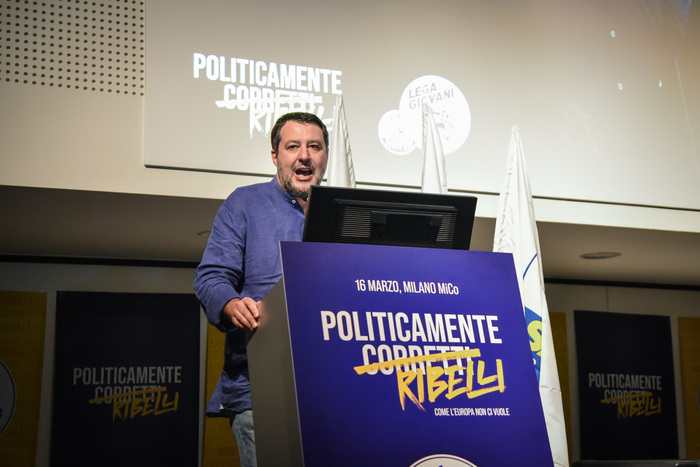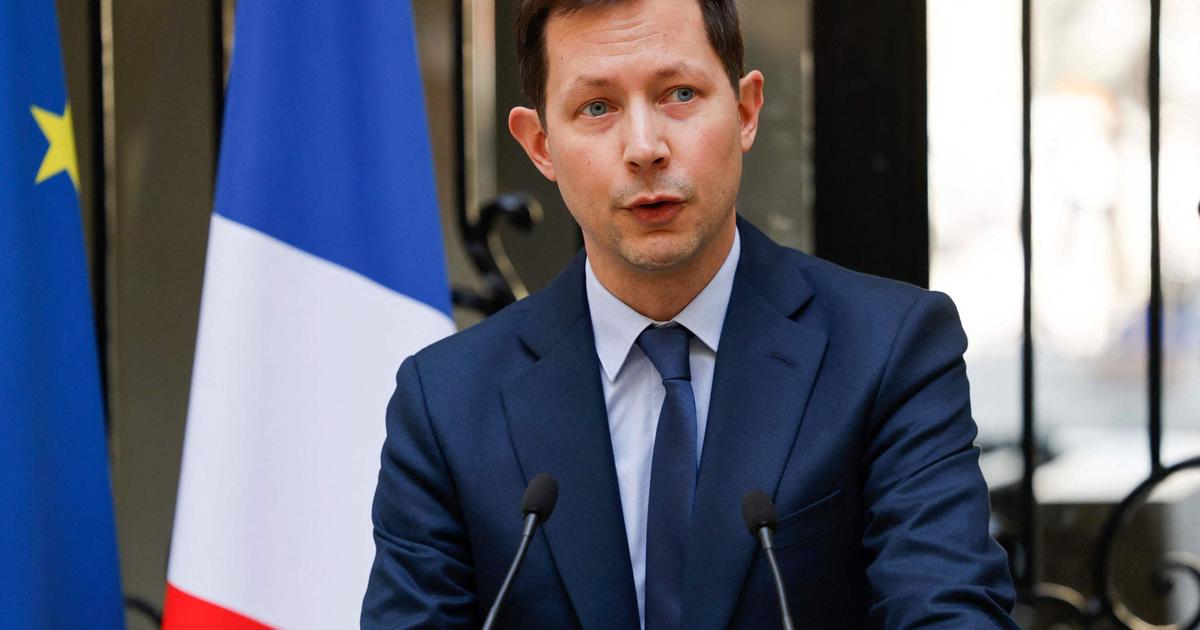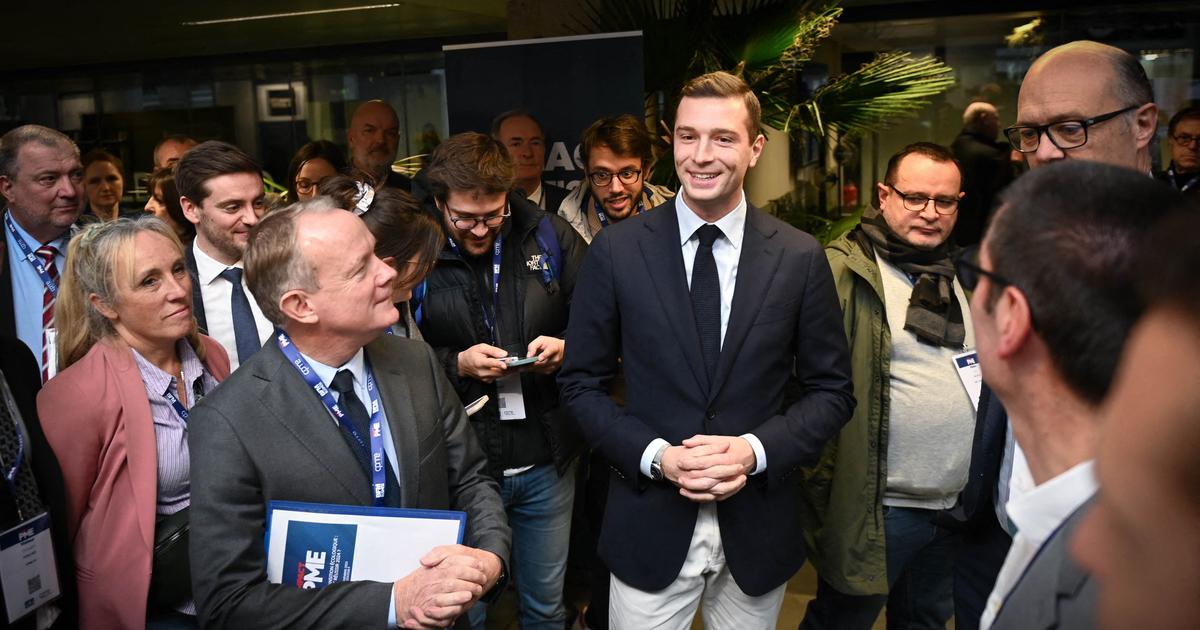Laurent Cantet (Melle, France, 60 years old) realized that he was politically aware when he was only 8 years old “perhaps because I come from a family of militants”.
After a childhood marked by May 1968 and a youth of student movements, he soon realized that his left-wing ideas led him to feel brotherhood with immigrants and without papers, but that he could not fit into a party: "My soul It doesn't work with that compromise."
He found refuge in social cinema, which he conquered in 1999 with
Human Resources
, a devastating critique of the contemporary world of work.
He now he sets his sights on social networks in
Arthur Rambo
, the story of a teenager of North African origin raised in a
banlieue
who succeeds in the elite Parisian literary scene but whose career is cut short by his past history on Twitter.
We meet Cantet in Madrid in the same week that France decides its political future.
Ask.
The debate that in 1968 took place in assemblies today on social networks.
Why do you have such a negative view of them?
Response.
I don't want to sound totally reactionary.
I am aware of the importance of social networks for militants who organize movements, who exchange ideas, but I have the impression that on Twitter one expresses himself in any way: you have to react very quickly, you do not reflect before writing.
I think that tendency to think in slogans is part of contemporary culture.
And that simplification of thought scares me.
Q.
Why do even adults become infantilized?
R.
I think we are not adults in front of social networks.
That's exactly what the movie talks about.
We have to work on trying to understand what role we have in this machine, what place they occupy in our lives and what violence they generate in a public debate.
And I think we haven't done any of that yet.
It is as if we are still learning to use them.
P.
With your film it is concluded that the networks favor the rise of the extreme right.
The rise of fascism in Europe, however, occurred at a time when there were no networks.
How do you explain that?
R.
Extremism of any kind works on very simple ideas, I would even say simplistic.
When you have a complex idea, a few characters are not enough to express it.
And that is why networks are a perfect tool for extremism.
It is not necessary to take into account the complexity of thought.
P.
But are there real well-founded reasons for the discontent and anger that circulates in the networks or are they a morbid invention?
A.
There are very good reasons for discontent.
Today's young people, like Karim in the film, explain it to the beast and although I don't share the attitude, I understand the anger.
This is also why networks are a true reflection of modern society.
There are very good reasons for discontent.
Today's young people explain it to the beast and although I don't share the attitude, I understand the anger
P.
Who do you think has contributed more to legitimizing hate speech in France, Marine Le Pen or Michel Houellebecq?
R.
It is that for me there is no such dichotomy at all.
Marine Le Pen wants to take control of the country, something that does not happen with Houellebecq at all, which is the objective of it.
A political conviction has nothing to do with exercising freedom of expression.
I think you can write the psychology of a serial killer without wanting to kill anyone.
And it is also interesting to look at the world with all its excesses to understand it better.
P.
There is always an important effort in your work to explain the origins and roots of anger and hatred.
Do you not believe in the possibility that evil simply exists?
R.
I am not interested if it exists.
What interests me is trying to understand the mechanisms of people and to achieve this I try not to enter into moral judgments.
As Renoir says, everyone has their reasons.
And it is those reasons that I want to study.
It may be very materialistic of me, I don't know.
P.
What does the photo of Macron lying on the sofa mean?
R.
I think that Macron has a very elitist image, of being well above the people because he himself feels essential.
It's a way of telling people: look, I'm like you, I throw myself on a sofa, I'm not wearing a tie, it shows the hair on my chest.
It is something very calculated by his communication advisors.
P.
At what point do you think the power of the people in France began to move away so much?
R.
Mitterrand stayed in power for a long time and there began a discontent that settled.
The left-wing militants realized that with a left-wing president it is more delicate to make demands.
Then came the successive social crises that installed discouragement.
And finally came Hollande, who, for me, destroyed left-wing thought, mixing it with right-wing thought, intentionally and dishonestly creating confusion.
His catchphrase was “Finance is my enemy”…and he went to great lengths to satisfy the bankers!
The population feels betrayed by politicians, not only in France, everywhere, but young people begin to judge the judge and begin to try to make his point of view heard and that reassures me.
Q.
The leading actor in the film came out of a
banlieu
in real life and now they offer him contracts with brands.
To what extent has the luxury industry turned the world to the right?
R.
The need to be part of the consumer society is transforming even people's thinking.
Now four-year-olds know about the existence of a specific brand of sneakers.
It is a way of existing and defining oneself that until recently was unthinkable and it terrifies me quite a bit.
We are toys in the hands of commercial mechanisms that are eating us.
P.
And how have you managed to get your own children to escape the clutches of the consumer society, so present in France?
A.
Not attaching any importance to those things myself, I suppose.
But these issues are also social markers.
Sometimes luxury matters more to the marginal kids in the
banlieues
than to the privileged.
R.
Are you afraid of what may happen tomorrow?
R.
I am convinced that Macron will win.
The terrible thing is that the word of the left no longer has any echo and that the dilemma is to choose between the ultra-liberalism of Macron or the fascism of Le Pen.
Exclusive content for subscribers
read without limits
subscribe
I'm already a subscriber









